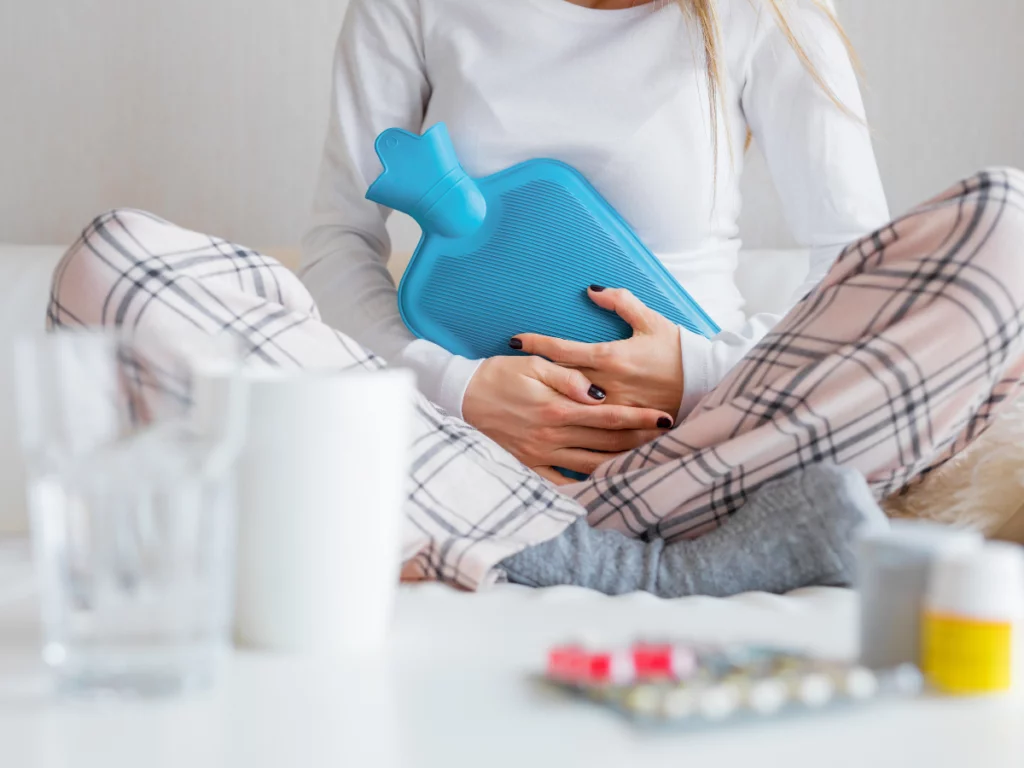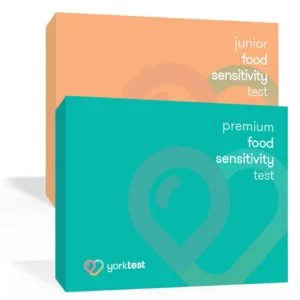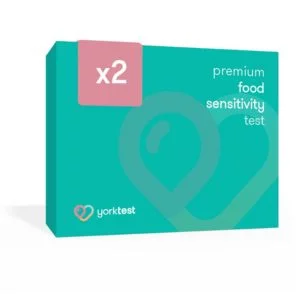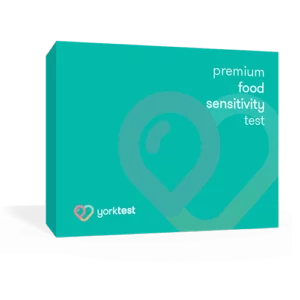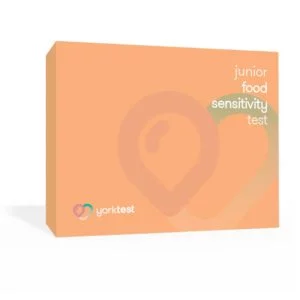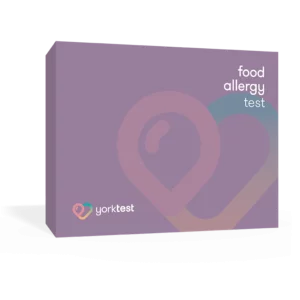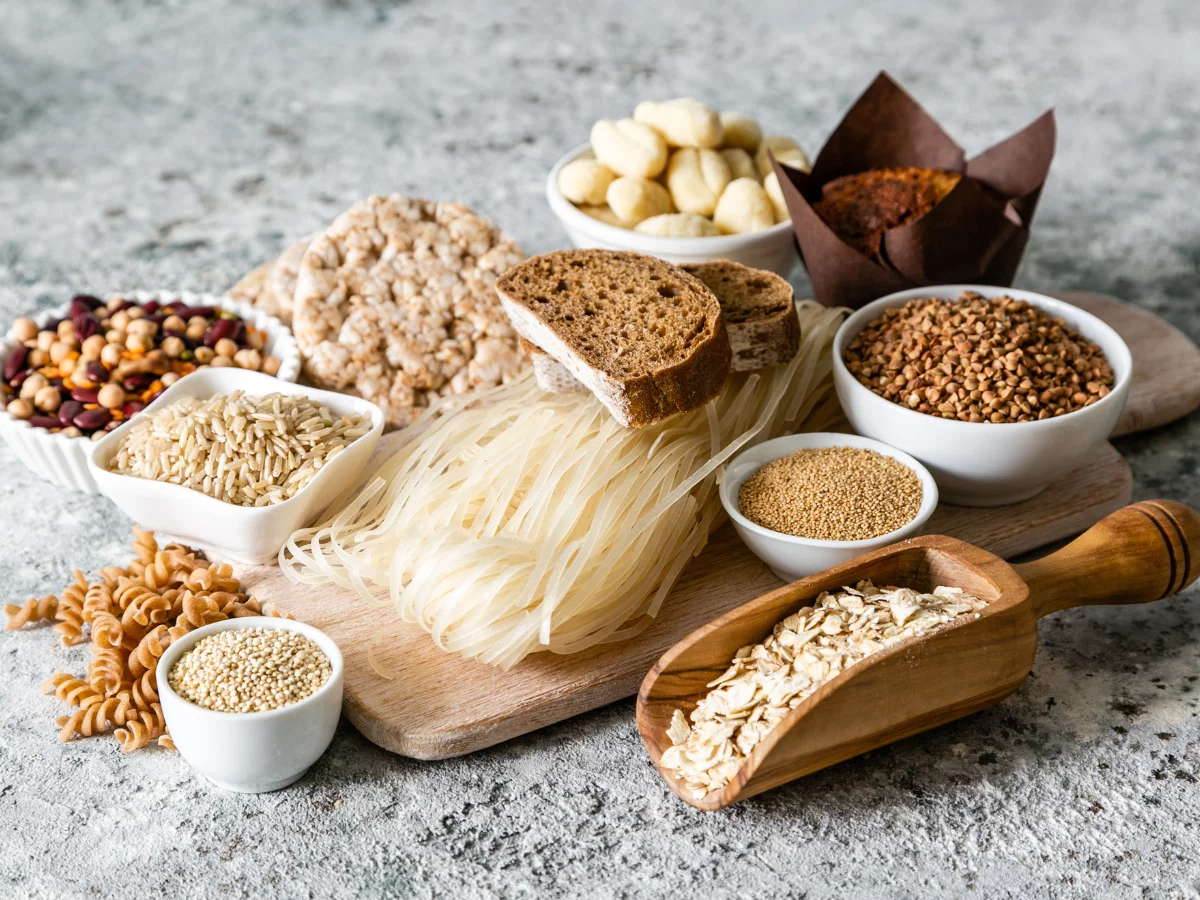- The 5 Most Common Pains of IBS
- 1) Abdominal Pain and Cramping
- Our Example
- 2) Bloating and Swelling of the Stomach
- Our Example
- 3) Constipation or Diarrhea
- Our Example
- 4) Excessive Wind
- Our Example
- 5) Nausea
- Our Example
- Fast Pain Relief for IBS Symptoms
- Invest in a heat pack or hot water bottle
- Take a long, hot bath
- Drink non-caffeinated herbal tea
- Embrace relaxation techniques
- Stay active
- Over-the-counter medicine (OTC)
- Long-term management of IBS pain
- Managing Your Diet
- Adjusting Your Lifestyle
- Prescription Medication
Irritable Bowel Syndrome (IBS) is a functional gastrointestinal disorder that affects around 10-15% of the US population. It can develop at any age and affect just about anyone. IBS is characterized by a range of symptoms involving the gastrointestinal system, particularly the large intestine of the digestive tract.
While there is currently no exact cause or cure for IBS, studies have shown that IBS has a strong connection to food and gut hypersensitivities that can be addressed through dietary and lifestyle changes.
Despite being a common disorder, IBS symptoms can vary substantially from person to person, from persistent discomfort all the way to severe pain. This can negatively impact a person’s quality of life, not to mention being both embarrassing and distressing. If you’re looking for some help with IBS symptoms, we’ve compiled a list of the top 5 most common types of pain that IBS sufferers report, complete with tips for short-term relief and long-term pain management:
The 5 Most Common Pains of IBS
1) Abdominal Pain and Cramping
At its most severe, IBS abdominal pain can be sharp, like a stabbing pain in the abdomen. It can be extremely debilitating, especially when linked to other IBS symptoms.
Our Example
Abdominal IBS left 11-year-old Louisa in agony, taking her away from classes, playtime and a carefree childhood. However, Louisa was able to reclaim her childhood and her quality of life.
2) Bloating and Swelling of the Stomach
Abdominal distension is a common complaint of IBS sufferers. Often describing a flat stomach in the morning, which becomes more distended during the day, this can sometimes be linked to excessive abdominal gas.
Our Example
Find out how 25-year old Heather, who suffered with bloating and digestive discomfort, managed to identify her trigger foods with one of our food sensitivity tests.
3) Constipation or Diarrhea
Fluctuating bowel habits can be a particularly distressing symptom during an IBS flare-up, often alongside abdominal pain or cramping. It’s possible to have episodes of both, but some people, like our example, Debs Hill, can experience more of one than the other.
You may have heard people refer to IBS-C and IBS-D. IBS-C stands for Irritable Bowel Syndrome with Constipation, whereas IBS-D stands for Irritable Bowel Syndrome with Diarrhea. So, if you find that you only ever experience one of these two uncomfortable symptoms, it’s likely you could be categorized as an IBS-C or IBS-D sufferer.
Reading more about these sub-types of IBS may help you to learn more about managing your personal symptoms.
Our Example
Learn all about 43-year old HR Manager Debs Hill’s struggle and experience.
4) Excessive Wind
Some foods are naturally gas-producing and, for an IBS sufferer, they can exacerbate problems, causing additional pain and distress. IBS sufferers must take great care to limit food that triggers reactions. If you suspect your diet could be the cause of your discomfort, find out if any of these foods could be the cause.
Our Example
For 26 year-old Eleanor Newton, these symptoms brought a sense of unease when going out to eat, until she took a food sensitivity test to find out if there were trigger foods that might cause her digestive issues.Â
5) Nausea
Nausea can often manifest alongside other IBS symptoms, such as bloating and abdominal pain, making the sufferer feel sick after eating and contributing to the anxiety that can be associated with mealtimes.
Our Example
For 55-year old Trudi, her nausea and IBS symptoms affected her life considerably, to the point where she admitted that ‘I stopped socializing and I would not attend places where they had food as I worried that it would make me ill’. However, Trudi overcame her condition and reclaimed her life.
Fast Pain Relief for IBS Symptoms
While there is no permanent fix for IBS, there are several ways to help reduce pain in the short term with a few simple at-home remedies.
Invest in a heat pack or hot water bottle
Whether it’s putting the kettle on and filling up a hot water bottle or placing a heat pack in the microwave for 30 to 90 seconds, gentle heat over the abdomen can bring relief from pain and IBS cramping. If you are looking for a fast and effective way to treat IBS, heating pads for IBS are a great option.
Take a long, hot bath
A hot bath is not just an occasional self-care treat to slow down and take some time out to enjoy the steam and bubbles. The full-body experience of a hot bath can also be beneficial to minimizing abdominal pain as the mild heat calms and soothes the lower back and pelvic area.
Drink non-caffeinated herbal tea
In contrast to caffeinated coffee, which has an invigorating effect and stimulates gut motility, caffeine-free herbal tea has a calming response for many IBS sufferers.
A soothing hot chamomile tea can help relieve digestive problems, while peppermint tea is known for its antispasmodic properties, which helps to reduce cramping. Anise tea can be a good natural laxative for constipation, while fennel tea has been known to support general digestive health. Other types of herbal teas that have been linked to soothing digestive issues also include turmeric, dandelion, liquorice, ginger, nettle, and lavender tea.
Embrace relaxation techniques
Whether it’s losing yourself in the pages of a good book, listening to a favorite album, drawing, or meditating, cathartic activities can help to move the focus away from IBS symptoms and reduce stress. Prolonged stress is known to cause chronic inflammation in the body and can potentially aggravate IBS attacks.
Stay active
While staying active might sound counterintuitive when suffering with IBS symptoms, low-impact regular exercise – such as walking – can minimize stress, ease bloating and improve overall bowel function.
Additionally, the endorphins boost post-exercise will work wonders on mood regulation and keeping stress levels in check. For those who experience diarrhea during an IBS attack, indoor low-to-moderate activities like yoga or Pilates are recommended alternatives.
Over-the-counter medicine (OTC)
Easily accessible over-the-counter medicine that offers diarrhea or constipation relief might be an option for those who can manage their mild to moderate IBS symptoms without seeing their doctor. Over-the-counter IBS medications can include fiber supplements, and pain medications like pregabalin and gabapentin that can help keep the pain or bloating under control. For those experiencing severe IBS symptoms and abdominal pain, prescriptions and practitioner-licensed medication might be the way forward. However, always consult your health provider before taking any medication.
Long-term management of IBS pain
Beyond these tips for more immediate relief, there are also ways to reduce the likelihood of IBS flare-ups for those living with the condition long term.
Managing Your Diet
Whether you’re experiencing an acute IBS attack lasting a few hours, or reoccurring IBS spasms lasting several days, some of the best foods to eat with IBS include:
- Vegetables like carrots, cucumbers, kale, lettuce, spinach, ginger, potato, radish, olives, pumpkin, and tomato
- Fruits like oranges, mandarins, clementines, strawberries, grapes, and papaya
- Beef, chicken, lamb, pork, and various types of seafood
- Rice, cornmeal, and gluten-free grains
- Eggs, cheese, and lactose-free milk, and yoghurt
- Olive oil, coconut oil, sesame oil, sunflower oil
While these examples are all no-to-low FODMAP options, even foods like these that might be considered low-FODMAPs should be consumed mindfully. Certain combinations of these foods can result in “FODMAP stacking”, which can put you past the threshold that still causes IBS symptoms.
A good starting point for those with recurring IBS or IBS-type symptoms is the Premium Food Sensitivity Test. IBS flare-ups can be a reaction to certain trigger foods, even if that food is low FODMAP. At-home food sensitivity testing can help to identify which foods you are reacting to and help to take control of your condition.
Adjusting Your Lifestyle
Regular exercise has also been linked to a decrease in IBS symptoms. Aside from an overall health boost, physical exercise helps induce more frequent bowel movements and more rapid colon transit than a sedentary lifestyle.
Staying active also keeps stress levels in check as exercise is known to reduce stress and contribute to better sleep, improved mental health, and quality of life. This is particularly important for IBS sufferers whose symptoms are aggravated by chronic stress. Studies have shown that psychological stress is not only a factor in chronic inflammation in the body, but it can also reshape the gut’s bacteria composition. This can, in turn, aggravate IBS symptoms.
Prescription Medication
If OTC medicine isn’t the way to go to manage IBS flare-ups, there is also the option of prescription-based medications. These are wide-ranging and should only be considered after consulting with your medical provider.
An At-Home Food Sensitivity Test can be a good starting point for IBS sufferers looking to optimize their diet and find out which foods might be causing an IgG reaction.
The YorkTest Premium Food Sensitivity Test takes just a few minutes to collect a blood sample. It’s a simple finger-prick blood test you can take at home and then send back by post to our accredited laboratory for analysis. We test for reactions to 200 foods, and you will receive your results online within 7 days.

